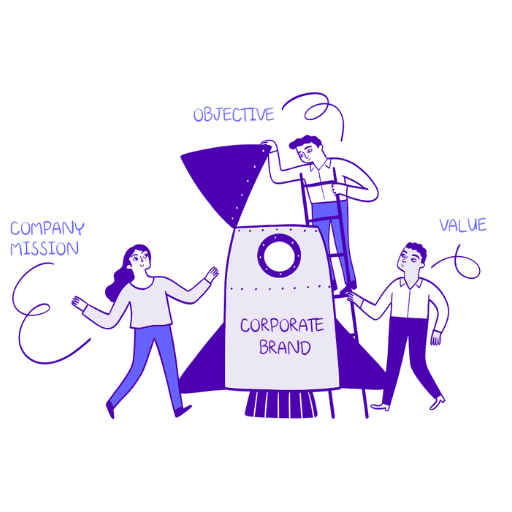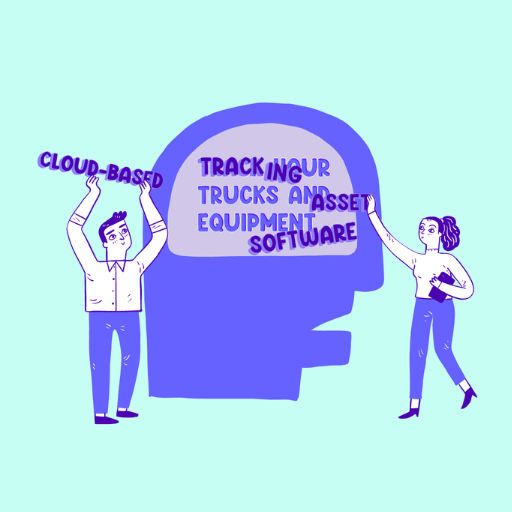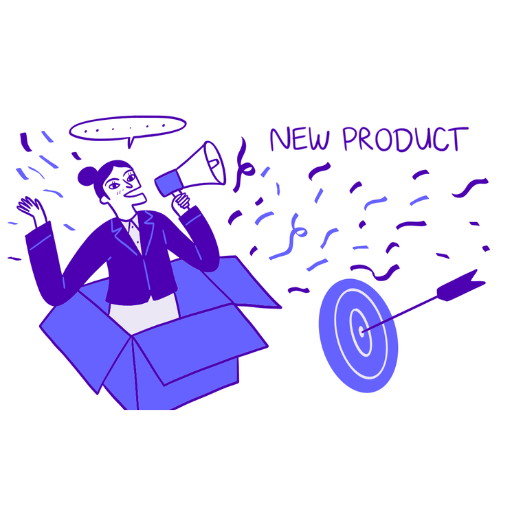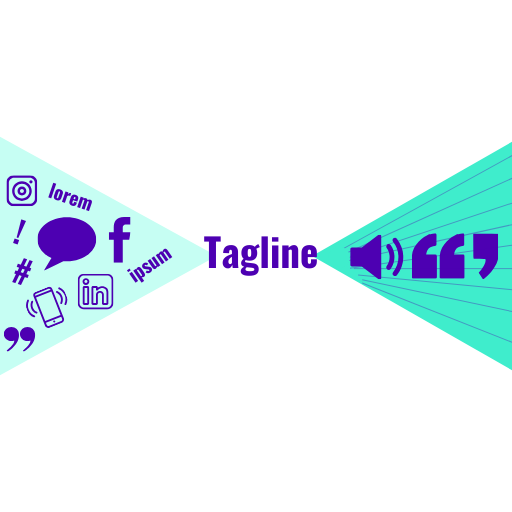
Brand Audit Definition: What Is a Brand Audit and How Is It Done?
A brand is a perception someone has of a particular person, place, thing or idea. No perception, no brand. Branding creates your desired perception, and The Backstory Brand Wheel™ Framework guides that process. This assessment is an integrated brand audit that identifies any gaps between your current and desired brand perceptions so you can build an effective brand strategy to close those gaps.
It provides a practical methodology for building a brand that can scale with your business. It’s a practical and actionable approach to branding that aligns and inspires your internal team and partners' daily branding activities and decisions to create your desired perception. We recommend doing your brand audit as a team to determine the degree to which you have a shared understanding of these elements.
The brand audit process
The process starts at the center of the Backstory Brand Wheel™ and works its way out. These foundational elements of your brand change less frequently than the ones on the outer ring of your wheel in brand activation. In fact, your brand purpose, the element at the center of your wheel, never changes. It’s the guiding North Star for your organization over time because it defines your organization’s reason for being, whereas the other elements of the wheel define the what and the how.
The foundational elements of your brand include your brand purpose, brand position, brand promise, brand pillars, and brand personality. From there, you review the degree to which you have defined your ideal customers and personas and the marketing messages that resonate with them, your brand narrative, including your elevator pitch, about us statement and company overview, followed by brand architecture, naming, and verbal, visual and experiential brand guidelines.

Having defined these brand expressions, you move to brand activation, where the focus is on taking your brand story to market in a clear, concise, and consistent way across customer touchpoints. Thinking through your brand in this progression makes activating your go-to-market strategy much easier because you’ve identified your audiences and defined what to say to them.
The process of comparing and contrasting internal and external brand perceptions requires insights from internal self-reflection about your brand and how you think it’s perceived and want it to be perceived, along with market research from the perspective of your current and potential customers and industry trends.
You’ve also got to consider your performance marketing, including recent posts and social media campaigns and activity, along with other brand elements such as your brand awareness and brand equity.

Completing these steps results in an informed brand strategy that guides your current brand management strategies, marketing efforts, and customer experiences and creates a lens through which you can meaningfully interpret your competitive analysis to identify opportunities for differentiation.
Remember to engage key stakeholders from different disciplines across your organization—C-suite, executive team, product, sales, operations, and client success—to encourage diversity of thought and buy-in and generate actionable insights to improve your brand health and maximize your brand value.
Be sure to update the color status of each element within your Backstory Brand Wheel™ Audit as you progress from red to yellow to green. This will celebrate your team’s progress and motivate them to keep going, sustaining the focused commitment required to build a strong brand.
The Brand Audit Example from our client
Upon completing a brief questionnaire, you will receive a color-coded visual brand audit report via email that reflects the current status of your brand’s various elements with defined elements in green, partially complete elements in yellow, and yet-to-be-defined elements in red.
A pattern we often see in the initial brand audits from our clients looks like the example below. This pattern suggests the brand is consistently communicating its messaging and identity in the right way, but it may not be communicating the right messaging and imagery to support its desired brand perception. Following the branding process outlined in The Backstory Brand Wheel™ Framework helps you strategically define the right things to communicate, and then you can communicate them in the right way.


Your brand will be ready to scale when all the elements of your Brand Wheel are green. Turning all the aspects of your brand from yellow and red to green requires collaborative input from multiple individuals, teams and departments.
Teams that work together to accomplish this work create a shared sense of brand ownership, excitement, momentum, and alignment. You can celebrate your progress and prioritize the next steps as you turn all of your brand elements green.
Why is it crucial for my company to complete a brand audit?
Whenever you audit your brand, it provides valuable insights into your brand's perception and capacity to scale. It helps you evaluate your brand positioning, brand and audience messaging and visual brand identity–inputs that feed into your ability to make your brand stand out from competitors.

It also helps you improve the performance of your marketing efforts, including your social media and content marketing and brand awareness among target customers. Building and executing a strong brand strategy increases customer loyalty and satisfaction and informs ongoing brand messaging and brand image improvements, fostering stronger connections with your customers and consumers.
Completing a brand audit is vital for creating and sustaining a successful brand that resonates with all its audiences all the time.
Get started and take our free assessment. Upon completion, you'll receive a color-coded wheel in your email inbox showing how ready your brand is to scale.
Frequently Asked Questions
A brand audit is a comprehensive brand analysis that evaluates the current perception of your brand in the market. It identifies any gaps between your current and desired brand perceptions, helping you build an effective brand strategy to close those gaps. Completing a successful brand audit provides valuable insights into your brand's positioning, messaging, and visual identity, which are essential for making your brand stand out from competitors. Regular brand audits help improve marketing efforts, customer experiences, and overall brand health, ensuring your brand resonates with all its audiences.
It is recommended to perform brand audits regularly to maintain a strong brand identity and ensure your brand remains relevant and competitive in the market. The frequency of brand audits can vary depending on the size and nature of your business, but conducting a comprehensive brand audit annually or biannually is a good practice. Regular audits allow you to gather customer feedback, evaluate market trends, and make informed decisions to enhance your brand strategy and overall customer experience.
Conducting a brand audit as a team encourages diversity of thought, fosters collaboration, and ensures buy-in from key stakeholders across your organization. Engaging team members from different disciplines, such as the C-suite, product, sales, operations, and client success, generates actionable insights to improve your brand health and maximize brand value. A collaborative brand audit process helps create a shared sense of brand ownership, excitement, and alignment, ultimately leading to a successful brand audit that strengthens your brand's position in the market.



.png)

%20-%20Made%20with%20PosterMyWall.jpg)
.png)
.png)
.png)

.png)





.png)








.png)
.png)
.png)

.png)



.png)




.png)







.png)
.png)

.png)
.png)


.png)
.png)


.png)
.png)

.png)
.png)
.png)
.png)